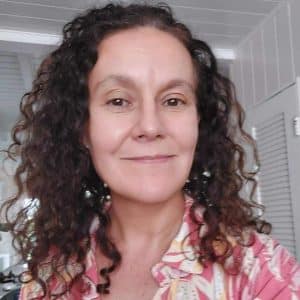We are very excited to share the latest news of the project we are beginning on San Andres Island, Colombia! Stony Coral Tissue Loss Disease (SCTLD) has been decimating coral populations throughout the Caribbean, and we are taking action to find ways to save and restore these populations.
Last year, PIMS and five organizations – three from Colombia (CORALINA, Ecomares NGO and Blue Indigo Foundation) and two from the USA (Gignoux-Wolfshon Lab-University of Massachusetts Lowell and The Ushijima Lab-University of North Carolina Wilmington) – were granted a CORDAP (Coral Research & Development Accelerator Platform) award to develop coral probiotics that can be used to stop SCTLD in infected coral colonies and to boost coral health, survival, and growth on microfragments and coral recruits.
This project, called “Giving Caribbean corals a future: SCTLD and the use of probiotics in coral restoration projects,” will be ongoing for the next three years, and all our fieldwork will be on the Caribbean Island of San Andres (Colombia). We aim to provide an alternative to the current SCTLD treatment, which is the application of antibiotics that are not only costly but can potentially have negative impacts on the reef environment. The probiotic treatments developed will be shared with collaborators working in other coral reef areas in the Caribbean.
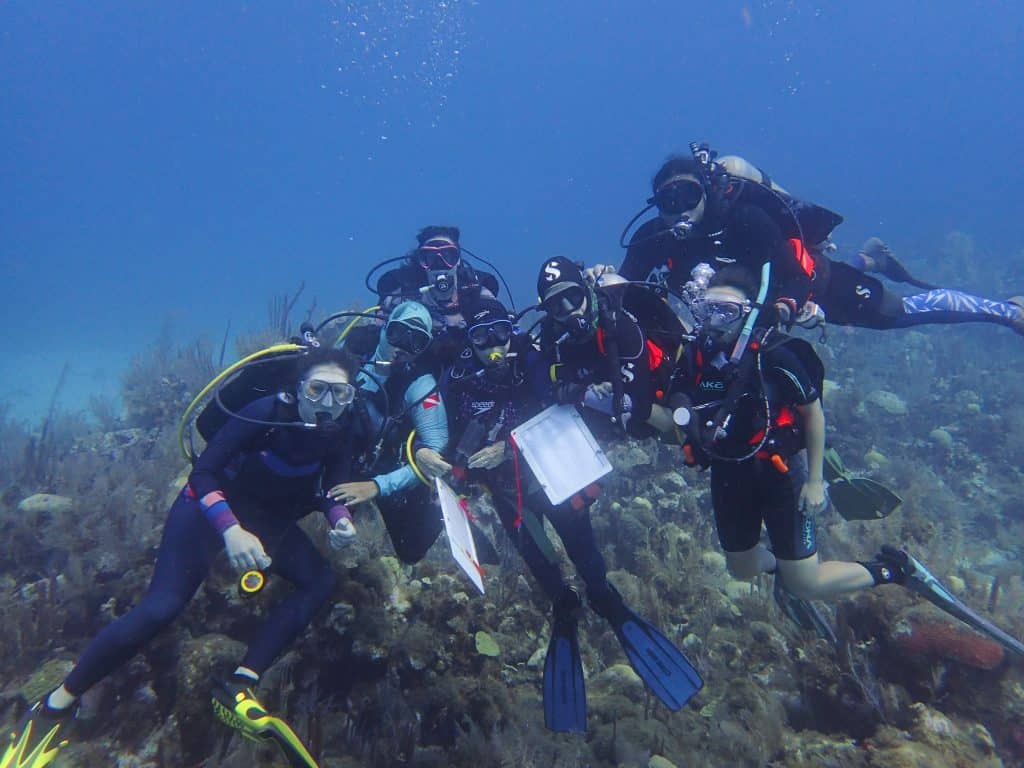
During the last two weeks, PIMS senior scientist and manager of our coral program, Dr. Valeria Pizarro, who is the principal investigator of this project, along with researchers and students from our CORDAP project partners, were collecting the first samples and photos to start this project. Venturing beneath the waves, we conducted dives at six sites, gathering coral microbiome and mucus samples while establishing our first permanent monitoring plots. Through meticulous photomosaics, we aim to monitor coral populations and assess the efficacy of both antibiotics and probiotics.
Dr. Sara Gignoux-Wolfshon and her team will be studying coral microbiomes, including classifying all the microbes associated with corals. Leveraging this knowledge, Dr. Blake Ushijima will spearhead the development of probiotics that will be tested in SCTLD-infected coral colonies (PIMS and CORALINA will lead this activity), as well as in restoration projects using coral microfragments (i.e., coral fragmented into 1 x 1 cm pieces, led by Blue Indigo Foundation) and coral recruits (the first benthic stage of sexually produced corals, also called “coral babies” by non-scientists, led by Ecomares NGO).
At the end of the week, CORALINA hosted a press conference to inform local media about the project and its importance for the island, the archipelago, and the Caribbean. With plans to visit San Andres Island imminently, we eagerly anticipate sharing further updates on our progress.
Together, we’re forging a path towards a brighter, more resilient future for Caribbean coral reefs—one probiotic at a time.
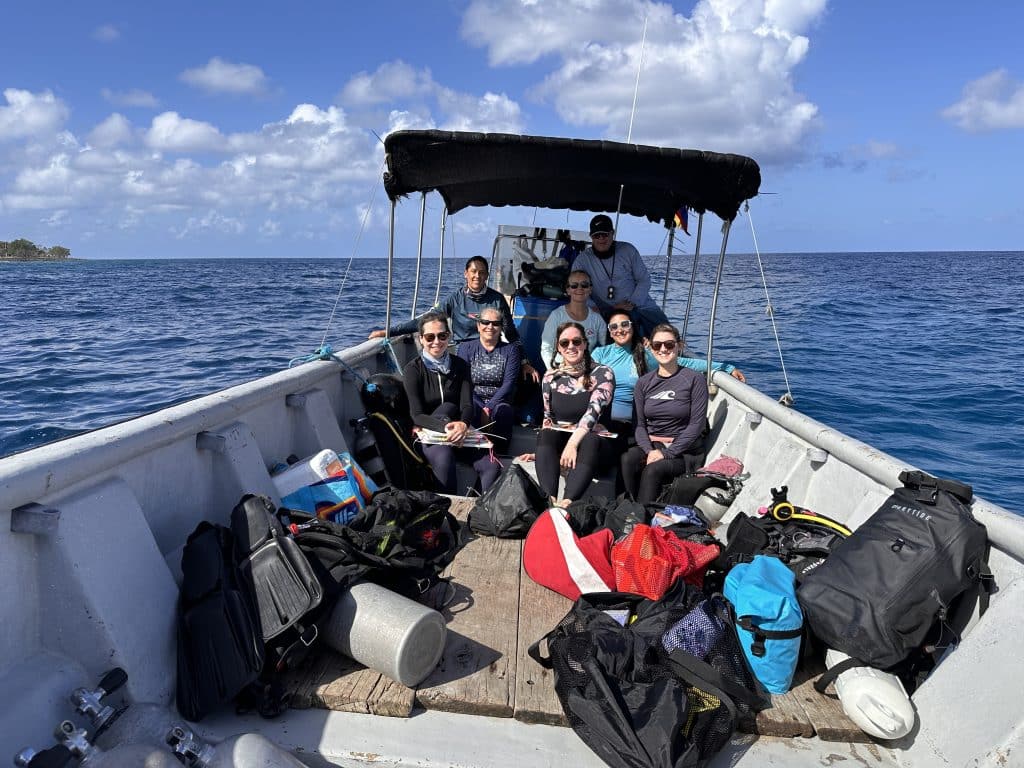
Dive deeper.
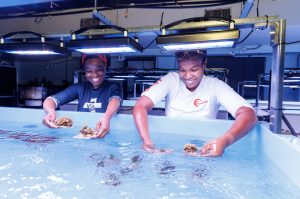
The Bahamas Just Opened a Coral Gene Bank—Here’s Why It Matters
The nation’s first coral gene bank will preserve, propagate and replant coral to reverse devastation from rising ocean temperatures and a rapidly spreading disease Video courtesy of Atlantis Paradise Island.
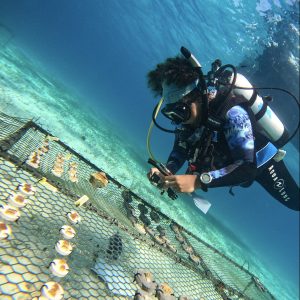
This Is What Conservation Leadership Looks Like
From Interns to Leaders: How PIMS is Powering the Next Generation of Ocean Advocates Taylor photographs coral microfragments in the ocean nursery, helping monitor their fusion into healthy, resilient colonies
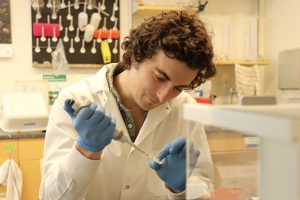
When Ocean Forests Turn Toxic
New study in Science connects chemical “turf wars” in Maine’s kelp forests to the struggles of Caribbean coral reefs — and points to what we can do next Lead author,
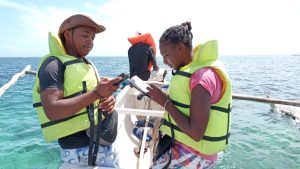
Who’s Really in Charge? Unpacking the Power Struggles Behind Madagascar’s Marine Protected Areas
Researchers head out to monitor Marine Protected Area boundaries—where science meets the sea, and local stewardship takes the lead. The Illusion of Protection From dazzling coral reefs to centuries-old traditions,
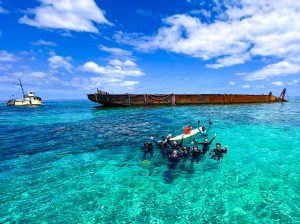
PIMS and Volunteers Step Up as Legal Battle Leaves Barge Grinding Reef in Fowl Cays National Park
Worn out but undefeated, the cleanup crew rallies around their paddleboard “workbench” in front of the stranded tug and barge—a snapshot of community grit after hours of underwater heavy‑lifting. Photo
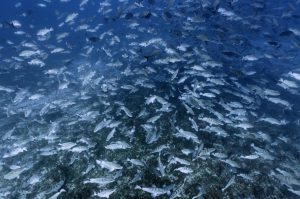
Thriving Fish Spawning Aggregation Inspires Hope for the Future
Nassau grouper FSA in Ragged Island during January 2025. | © André Musgrove Fish Spawning Aggregations & Nassau Grouper Imagine witnessing thousands of fish gathering in a synchronized spectacle, moving


